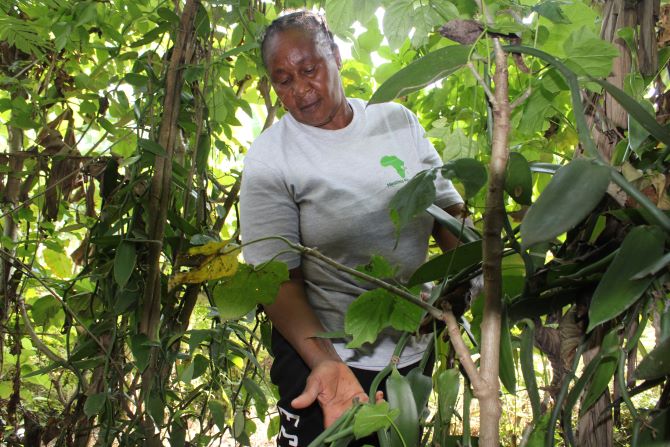ARUSHA, June 20, 2024 – The philanthropies are soliciting close to US$ 4.3 trillion to finance the global promotion of agroecology in the next 10 years. This was disclosed during the recent conference on Regenerative and Agroecological and Food Systems Transformation held in Arusha, Tanzania.
Sara Farley, Vice President of The Rockefeller Foundation disclosed that US$ 430 billion is required annually to carry out the activity.
“Total current investment is US$ 44bln per year. We are appealing to philanthropies, governments, private partners, and other well-wishers, we need a systemic and sustained approach to addressing the interlocking crisis that we are facing, the cost of a climate biodiversity crisis, food security, and inequality is already being felt by governments, taxpayers, and the most vulnerable,” she said.
The Global Alliance for the Future of Food is leading the engagement process and it has been strategic in alliance of philanthropic foundations working together with others to transform global food systems now and for future generations.
Lauren Baker, Deputy Director of the Global Alliance for Future of Foods feels that through the philanthropic leadership and civil society organisations in Tanzania, the funds needed can be leveraged as a group to transition.
“We know that we need ten times the amount of funding to properly transition to regenerative and agroecology approaches, as a group our job is to make a case and talk to other funders and make sure the funds are put to the right use,” she said.
She further explained that they will build a connected movement with countries that are developing national strategies as a guide to the action.
Jasmin Hundor, Senior Advisor on Agroecology at GIZ observed that from 2014 to last year, GIZ invested 800 million Euros on 80 projects globally for agroecology noting that East African countries of Uganda Kenya, and Tanzania are their area of focus as well.
“We have come to listen to the demands of the different governments to be able to align strategies of the transformation agenda,” she said.
Daniel Moss, President of the Agroecology Fund observed that they are committed to supporting grassroots initiatives for small-scale farmers that address food systems.
Dr John Garcia Ulloa, Senior Programme Manager at Biovision Foundation notes that two critical areas need to be focused on that is the coordination of the different foundations and also the element of finance and investment to achieve the target.
He also said that through proper coordination it will be easy to mobilise resources to fund the transformation and also avoid duplication of resources.
“The strategy is providing the elements, for this strategy to make a difference to transform the food systems we need resources, to strategies creating a market, strengthening network and building capacities,” Garcia said.
Meanwhile, the Government of Tanzania has committed Tsh 1.248trn for the financial year 2024/2025 for agroecology.
The Permanent Secretary of the Ministry of Agriculture, Gerald Geofry Mweli said the government of Tanzania values the contribution of ecological agriculture in creating sustainable food systems.
It has been noted by the scientific community that Ecological Organic Agriculture can be among the vehicles towards achieving national and international goals on food security, employment, and poverty reduction.
Thus, Tanzania through The National Ecological Organic Agriculture Strategy of 2023 – 2030, and other policies has set actions for sustainable utilisation of land and water sources for agriculture, the use of climate resilient agriculture practices, and conservation of forests, and other natural ecologies to advance food and nutrition security and safety, climate resilience, biodiversity as well as income and job creation.
“We collaborating with Development Partners, UN-based agencies, and Civil Society Organisations, to plan and implement various interventions on agroecology, supporting smallholder farmers in practicing agroecology, access to local and global organic and agroecological markets,” the PS added.
Swati Rendudintala from the The Center for International Forestry Research and World Agroforestry [CIFOR-ICRAF] , Kenya notes that the approach should be reaching out to more farmers and tapping on the experiences of small-scale farmers for inclusivity.
“We want to accelerate the process of regenerative and agroecology, we must take it to the farmers through collaborative approaches” Swati stated.
“Indigenous community, local women and the small-scale farmers are a bedrock in the solutions to achieve the sustainable food systems,” Michael Kwam Nkonu of the IKEA Foundation said.
Frison Emile, Senior Advisor of the Agroecology Coalition re-echoed from last year’s convening that was held in Rome, they have not yet moved.
“That is the reason we are here for this meeting, we want to identify a clear path and the different types of actors being government, and private sector to identify the different roles they play in accelerating the food systems transformation,” Emile noted.
The agroecology principles apply to all forms of sustainable agriculture and food production systems including crops, livestock and pastoral systems, agroforestry, fisheries, and aquaculture. The 13 principles of agroecology as defined by the high-level panel of experts of the committee on World Food Security and aligned with the 10 elements of Agroecology adopted by the 197 FAO members in December 2019.
The philanthropic partners who are participating in this initiative to address the issues related to global food and agriculture at different scales, on diverse issues, and from multitudes of perspectives are, the Africa Climate Foundation, Agroecology Fund, Biovision Foundation for Ecological Development, Global Alliance for Future of Foods, Children’s Investment Fund Foundation, European Climate Foundation, Funders for Regenerative Agriculture, Communications Foundation, and IKEA Foundation, among others.
https://thecooperator.news/agroecology-week-kicks-off-in-kampala-as-pelum-uganda-partners-with-govt/
Buy your copy of thecooperator magazine from one of our country-wide vending points or an e-copy on emag.thecooperator.news
